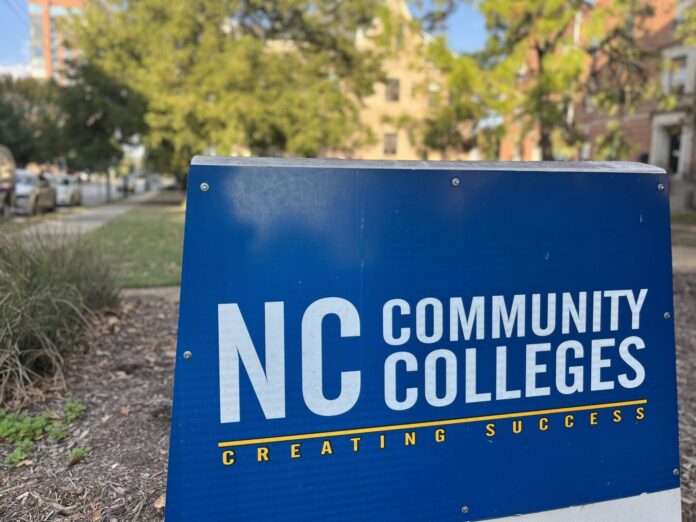The General Assembly successfully overrode the governor’s veto of the mini budget earlier this week, meaning that $64 million for enrollment growth and $12.7 million in receipts is on the way to community colleges across the state.
N.C. Community College System (NCCCS) President Dr. Jeff Cox said in a statement that the increased enrollment funding is “a crucial investment in the future of North Carolina.”
“This support ensures our 58 community colleges can continue preparing students for high-demand careers while driving economic growth in every corner of our state,” Cox said on Wednesday. “We appreciate the General Assembly’s recognition of the essential role community colleges play in transforming lives and building stronger communities. We look forward to working with state leaders to drive North Carolina’s continued success.”
Notice: JavaScript is required for this content.
The mini budget is now law, meaning that colleges should see enrollment growth funds soon.
Ahead of the General Assembly’s votes, the State Board of Community Colleges voted on Friday, Nov. 15, to provide contingent approval of an allocation of $76 million in enrollment growth funds to colleges that experienced an enrollment increase during Fiscal Year (FY) 2023-24.
“If we don’t do this, (and) if the funds get approved next week, then we’d have to wait until January to take action,” Cox said last week. “The colleges are desperate for this funding, so… as soon as it’s approved, we want to get the money out the next day, so that’s the rationale.”
Fifty-two of the state’s 58 colleges experienced enrollment growth last fiscal year, according to a system document.
Without the enrollment growth funding, some colleges were facing large budget deficits for this fiscal year, which impacts planning for the spring semester. Many of those deficits were in the millions of dollars.
You can view the enrollment growth funds each college will receive in the document below:
During the Board’s November meeting, Johnston Community College Board Chair Lyn Austin highlighted concerns from the N.C. Association of Community College Trustees (NCACCT).
Without the enrollment growth funding, for example, Johnston Community College told its representatives that it “faces cutting classes and increasing class sizes, obviously. But those cuts will not be sufficient to balance our budget. We would need to reduce our workforce with midyear layoffs — we estimate 12 positions, spread across all functional areas.”
“This has the potential to slam the brakes on JCC’s progress,” Austin said last week.
Per the NCCCS document, Johnston Community College is set to receive more than $3.2 million in enrollment growth funds.
While community college leadership has known since September that the enrollment growth funding would likely be coming in, most spring budgeting decisions have already had to be made.
It is unclear how many colleges, if any, already made budget decisions without factoring in enrollment growth funds.
According to Alex Fagg, NCCCS vice president of government and external relations, not having the enrollment adjustment increase was “unchartered territory” for the system. While the adjustment is not statutorily required, Fagg said it has historically been included in the state’s two-year and adjustment budgets.
The mini budget also includes $95 million in enrollment growth funds for public schools and an additional $463.5 million toward private school vouchers for this fiscal year. You can read more about K-12 impacts of the veto override here.
